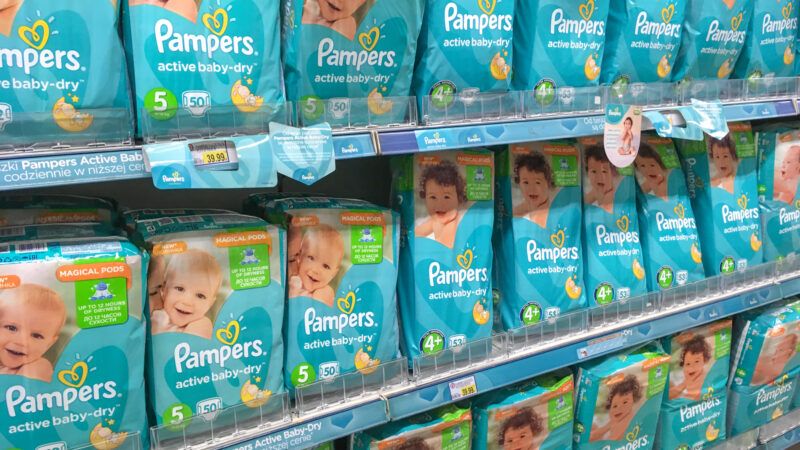Iowa Court Clears Mom of Endangerment Charges After She Let Kids Babysit
"No parent can shield a child from all risks," the Iowa Supreme Court ruled.

Three years ago, Paula Cole found herself needing diapers for her baby. The Waterloo, Iowa, mom of six decided to take her infant with her to Walmart—leaving behind the other kids: ages 5, 7, 9, 10, and 12. The time was 11 a.m.
This turned into an epic battle over the criminalization of her parenting that only recently ended at the state's supreme court. In a 16-page opinion, the court demonstrated an increasingly rare quality: common sense.
Here's what happened: While Cole was at the store, the other kids got into an argument, and the 9-year-old stomped off and paced the parking lot of their apartment complex. Her 10-year-old brother went out looking for her while the oldest child, a 12-year-old boy, stayed at home with the younger siblings. There is a conflict in the case record as to whether the 12-year-old was still asleep at the time. He was, at a minimum, "groggy."
The 10-year-old, who has autism, was upset when he failed to immediately find his sister, and so he begged a neighbor to call 911. By the time the police arrived, the 9-year-old had already returned to the stoop outside the apartment. Nevertheless, when Cole returned home, she was arrested and taken to jail for child endangerment.
Such stories hardly surprise me. In 2015, I was part of a legal team representing Chicago mom Natasha Felix, whose crime was letting her 11-year-old play with his siblings, ages 9 and 5, in a park next to her home. Felix was found guilty of child neglect, in part because her 11-year-old had ADHD; neurodivergent kids shouldn't supervise other kids, according to the judge. It took Felix over two years, and two levels of appeals, before the state's child welfare director cleared her of neglect, following an embarrassing expose in the The Washington Post.
Like Felix, Cole's initial contacts with the legal system did not go well. A jury found she had "knowingly acted in a manner that created a substantial risk to the children's physical, mental or emotional health."
Her first round of appeals also failed. The appellate court applied classic helicopter parenting logic: In leaving the kids at home, Cole had exposed them to a "risk of serious injury" because "anything could have happened." For instance, the court wrote, the kids "could have suffered a serious injury, or strayed from the apartment."
Cole did herself no favors by suggesting to police that all of this was the father's fault. The appellate court viewed this as blame shifting, because she hadn't actually asked the kids' father to watch them. Fortunately for Cole, the appellate court didn't get the last word. The Iowa Supreme Court reached a more reasonable conclusion: Cole had not exposed her children to any actual danger.
Drawing on the work of University of Idaho Law professor David Pimentel, who has written extensively on the criminalization of free-range parenting, the court warned against the idea that guarding against all conceivable harm is a legal necessity for parents.
"No parent can shield a child from all risks," wrote the court. "Rather, parents' best hope is simply to manage life's risks—including the very real risk that our efforts to avoid one risk will end up creating new and different risks."
Moreover, risks may be exaggerated by misinformation—for instance, by the media's highlighting the risk of stranger abductions and suggesting that it is safer to drive children everywhere than to let them walk on their own. Again quoting Pimentel, the court wrote that the risk of stranger abduction is effectively "non-existent." By contrast, wrote the court, "the American Academy of Pediatrics has published statistics suggesting that 'being driven to school in a passenger vehicle is by far the most dangerous way to get there.'"
Applying this outlook, the court cautioned that a parent should not be faulted for "creating a risk" if that risk is "part of the background risk of everyday life." Criminal endangerment requires an overt action by the parent when the parent takes a risk that is "independently unlawful" or "abusive."
The unanimous decision, filed earlier this month, overturned Cole's criminal endangerment conviction. The ruling ought to be applauded, as it assures Iowa parents that leaving kids at home when they are old enough to supervise others is perfectly responsible.


Show Comments (18)